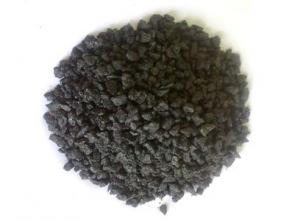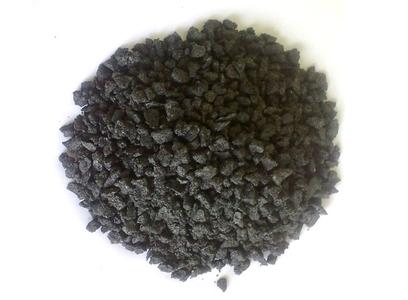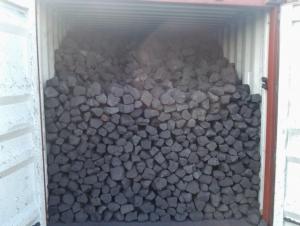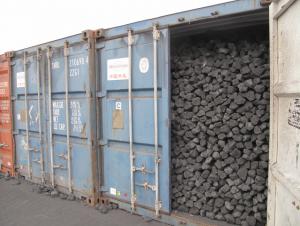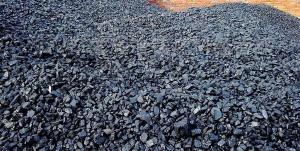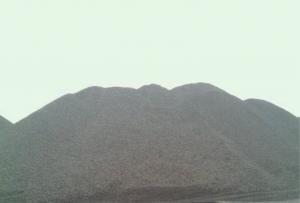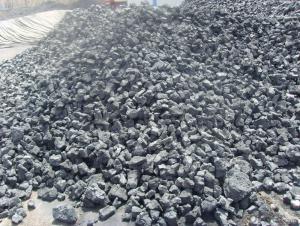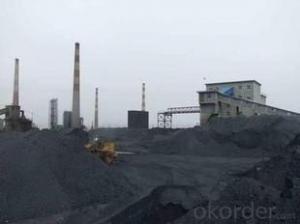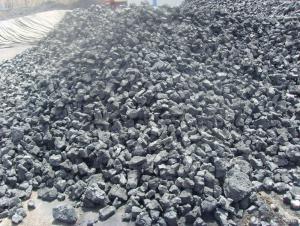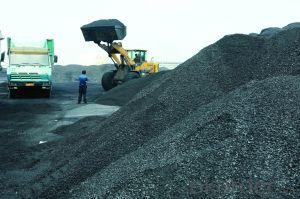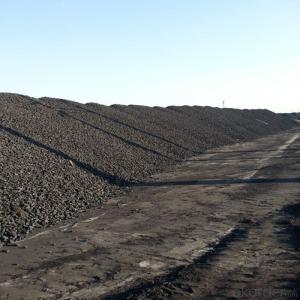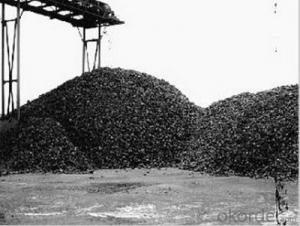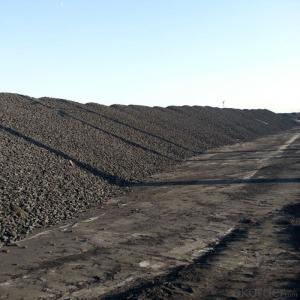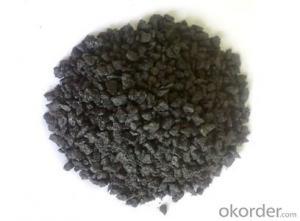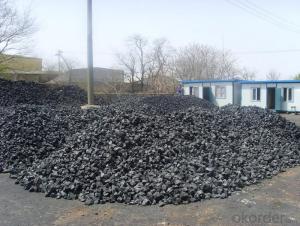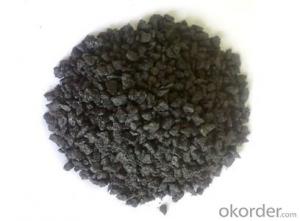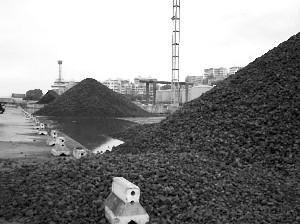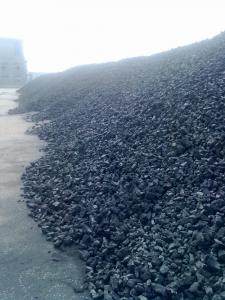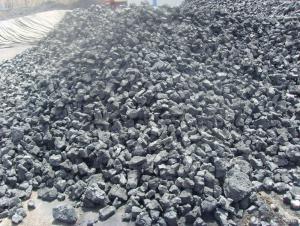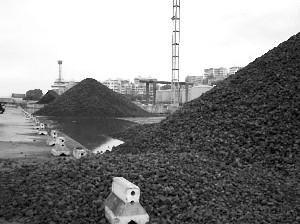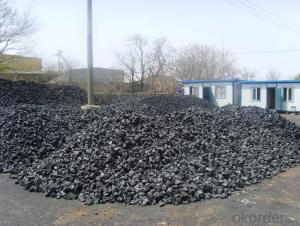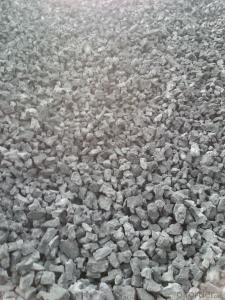NUT Coke of Low Phosphorus--0.018%
- Loading Port:
- Tianjin
- Payment Terms:
- TT OR LC
- Min Order Qty:
- 100 m.t.
- Supply Capability:
- 3000 m.t./month
OKorder Service Pledge
OKorder Financial Service
You Might Also Like
1. Structure of NUT Coke of Low Phosphorus--0.018% Description:
Coke is a hard texture, with carbon as the main component of irregular porous body, with cracks and defects in silver. The true density is 1.8 ~ 1.95 g/cm3, bulk density is 400 ~ 500 kg/m3, the porosity of 35% ~ 35%,.Coke all vertical and horizontal crack can be seen with the naked eye observation. The vertical and horizontal crack along the thick break, still is focal piece containing micro cracks. Separate focal piece of micro cracks along, namely coke porous body, also known as coke. Focal body consists of porosity and the pore wall, hole wall is also called the coke quality, its main component is carbon and minerals. How much coke crack directly affect the size and crushing strength of coke. Focal piece of micro cracks and holes spore structure of coke and abrasive resistance and high temperature reaction performance of coke has a close relationship. Spore structure usually use stomata average pore size and pore size distribution, specific surface area and pore wall thickness parameter.
2. Main Features of the NUT Coke of Low Phosphorus--0.018%:
• Quality assurance
• Mutual benefit
• Preferential price
• Various choice
3. NUT Coke of Low Phosphorus--0.018% Images:
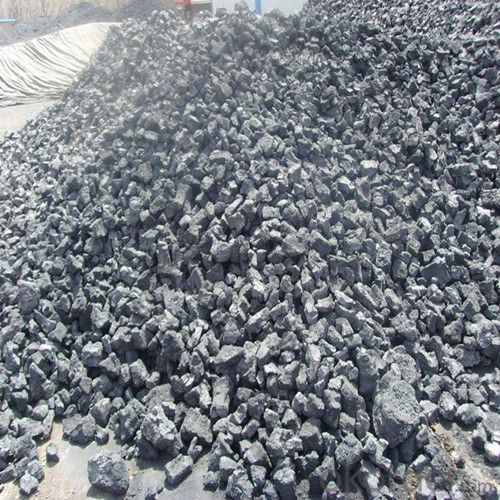
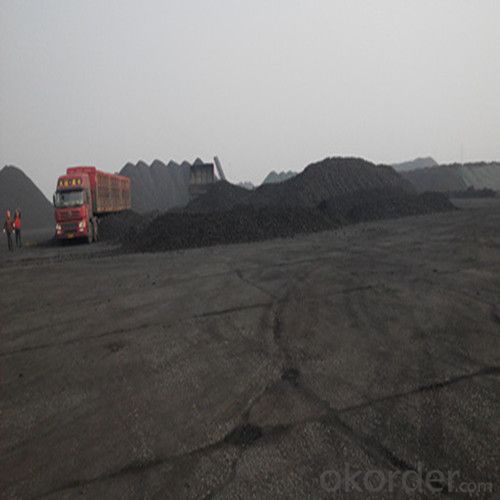
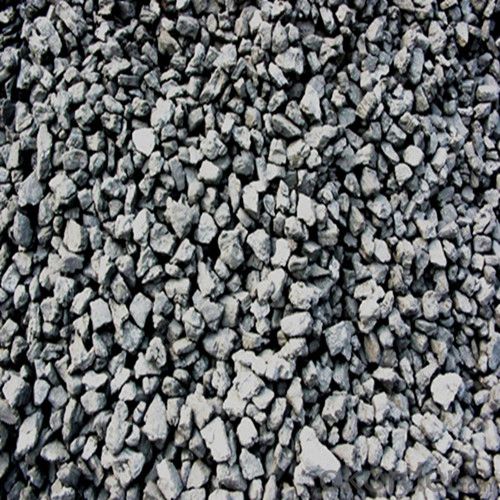
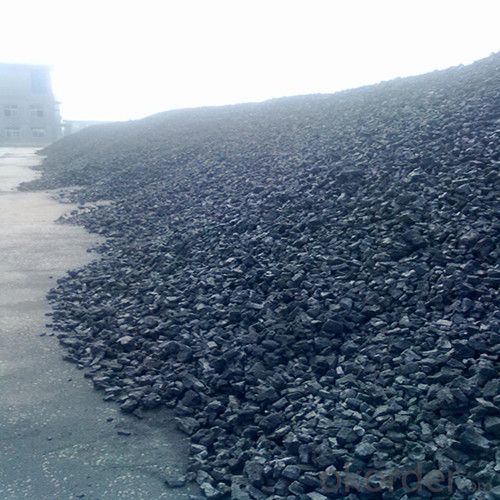
4.NUT Coke of Low Phosphorus--0.018% Specification:
Quality | Quality guaranteed |
Moisture (As receive basis) | 7% max |
Ash (dry basis) | 12.5% max |
Volatile Matter (dry basis) | 1.5% max |
Sulphur (dry basis) | 0.65% max |
Phosphorus (dry basis) | 0.018%max |
Size 20—50mm | 90%min |
-20mm | 5%max |
+50 | 5%max |
5. FAQ
We have organized several common questions for our clients,may help you sincerely:
1) How about your company?
Our company began to export coke when China cancelled 40% of coke export tariffs and quotas on January 1, 2013. We export many kinds of coke, such as CSR60 % and CSR 62% metallurgical coke (met coke), the NUT coke of 20 to 50 mm, coke breeze of 3 to 6 mm, and so on.
2) Main type
Metallurgical coke is blast furnace coke, coke, iron alloy and nonferrous metal smelting with coke. As more than 90% of the metallurgical coke for blast furnace ironmaking, so often called the blast furnace coke metallurgical coke.
Foundry coke is dedicated to cupola molten iron. Coke is the main fuel of cupola molten iron. Its role is hot metal melting furnace charge and overheating, support stock column maintain its good air permeability. As a result, coke blocks should have large, low reactivity, low porosity, with sufficient impact crushing strength, ash content and low sulfur content.
3) Application of coke
• Used for blast furnace ironmaking and used for copper, lead, zinc, titanium, antimony, mercury
• Other non-ferrous metal smelting of blast furnace,
• Reducing agent, compound
• The function of stock column frame.
- Q: What are the companies that produce coke
- Too many enterprises to produce coke. You search on Baidu, coke, a lot of business
- Q: Coke is how to produce, what is its purpose?
- Natural coke. Coke can be obtained by high-temperature carbonization of coal:
- Q: What does Coke test index M25 mean?
- . Coke crushing strength refers to coke can resist foreign impact force without ability along cracks or defects at the broken, represented by the M40 value; wear strength of coke coke refers to the ability to resist external friction without surface of glass forming debris or powder, said M10. The cracking degree of coke affects the M40 value of its breaking strength, and the pore structure of coke affects the M10 value. There are many methods for determination of M40 and M10, our method using migon drum test in Germany.
- Q: We would like to export a batch of coke, I would like to know what information is required for a permit
- 1, the Ministry of commerce website download and fill in the import and export license enterprise electronic key application form".2, fill in the application form, the "Registration Form for foreign trade dealers original and copy" or "foreign investment enterprise approval certificate original and copy" and "for the people of the Id original and photocopy" issued by the Department of foreign trade and economic cooperation when sending license, receiving approval.3, through the examination and approval, notify the enterprise payment. The examination and approval authorities will fax to Beijing materials guofuan e-commerce security certification of the company, making the electronic key by guofuan company, guofuan company will make a good electronic key, the installation and use of CD, invoice and electronic key receive confirmation etc. three express mail to the examining and approving authority for the examination and approval organ shall notify the enterprise.
- Q: Ca3 (PO4) 2, SiO2, coke and other raw materials for the production of silica gel (SiO2? NH2O), phosphorus, phosphoric acid and CH3OH, the following process raw materials comprehensive utilizationCa3 (PO4) 2, SiO2, coke and other raw materials for the production of silica gel (SiO2? NH2O (P), phosphorus, phosphoric acid and CH3OH, the following process raw materials comprehensive utilization rate is high, less waste(1) in the reaction, which belongs to the replacement reaction is ______[optional: (I), (II) and (III), (IV), (V).(2) chemical reaction equation II under high temperature of ______; solid waste can be used for ______. CaSiO3(3) reaction to be carried out in isolation and oxygen under anhydrous conditions, the reason is ______.(4) CH3OH can be used as a fuel cell fuel in strong acid medium, the electrode reaction type anode for ______.(5) pointed out that the significance of ______. (VI) in this part of the industrial production(6) written by P H3PO4, the reaction of the ______ ______.
- The answer is: Ca3 (PO4) 2+5C+3SiO2High temperature.?3CaSiO3+2P+5CO =; production of cement, brick or building materials such as;(3) R Si, Si and HCl reaction is the reaction of SiHCl3 with hydrogen, by the reaction of the hydrolysis of SiHCl3, IV, and the generation of hydrogen and oxygen in a certain range will explode, so it must be in contact with oxygen and anhydrous conditions,Therefore, the answer is: SiHCl3 hydrolysis, while the production of H2, mixed with O2 explosion, etc.;(4) methanol oxidation reaction, under acidic conditions, methanol in the cathode of carbon dioxide and hydrogen ions, CH3OH+H2O-6e-=CO2+6H+,The answer is: CH3OH+H2O-6e-=CO2+6H+;(5) the significance of this link in industrial production: recycling of raw materials, energy saving and emission reduction,The answer is: recycling of raw materials, energy-saving emission reduction;(6) from P to H3PO4, the phosphorus and oxygen into water and phosphorus pentoxide, compound phosphate, the equation is P+O2=P2O5, P2O5+3H2O=2H3PO4,The answer is: P+O2=P2O5; P2O5+3H2O=2H3PO4
- Q: What is the sample quantity of coke moisture test? What is the test time? How many degrees? That is the national standard.
- Methods for determination of moisture content of coke, a method of introduction of a certain quality of coke samples, placed in a drying box, drying at a certain temperature to a constant quality. Calculation of the percentage of water content in the mass loss of the coke sample. Two. Reagent color silica gel: industrial products
- Q: What is the amount of waste gas produced by a ton of coke burning
- The coking coal is heated to 1000 DEG C under the condition of isolated air (high temperature carbonization)
- Q: What are the requirements for coke and other accounts?
- Futures account opening process1, customers need to carry the original natural person identity card or temporary identity card (must be within the validity period), at least any one settlement bank (China bank, agricultural bank, industrial and commercial bank, construction bank, Bank of Communications) debit card or passbook, to the Futures Company branch or the securities business Department (IB) personally.2, the signing of the "futures trading risk statement", "futures brokerage contract", "bank transfer", "letter of credit" and other agreements, to provide the phone, contact address and postal code.
- Q: I see that there are metallurgical coke and coke on the Internet, what is the difference between them (I hope to be able to say in detail) and a level of two points, how is this going on?.. Where is the quality of coke in China? Hunan good coke plant which? Although the problem is a little bit more, I hope that insiders can give some useful information. Extremely grateful.
- I see that there are metallurgical coke and coke on the Internet, what is the difference between them (I hope to be able to say in detail) and a level of two points, how is this going on?.. Where is the quality of coke in China? Hunan good coke plant which? Although the problem is a little bit more, I hope that insiders can give some useful information. Extremely grateful.
- Q: What are the quality indicators of coke
- 2, the phosphorus in the coke: iron metallurgical coke coke content should be in the following 0.02 - 0.03%. 3, the ash content of coke: Coke Ash on the impact of the blast furnace smelting is very significant. Coke ash increased by 1%, coke consumption increased by 2 - 2.5%, therefore, the reduction of coke ash is very necessary. 4, volatile in coke: according to the volatile content of coke can determine the maturity of coke. Such as volatile content is greater than 1.5%, is said to produce coke; volatile less than 0.5 - 0.7%, it is said to be overdone, the general maturity of metallurgical coke volatile is divided into about 1%. 5, the moisture in the coke: water fluctuations will make the measurement of coke is not allowed, resulting in fluctuations in furnace conditions. In addition, the increase in the moisture content of Coke will make the M04 high, M10 is low, the drum index error. 6, the screening of coke composition: in the blast furnace coke particle size is also very important. In the past, the particle size of coke in our country is as follows: the coke size of large coke oven (1300 - 2000 square meters) is greater than 40 mm; the coke size of medium and small blast furnace is larger than 25 mm. However, some of the steel test shows that the coke particle size of 40 - 25 mm as well. Larger than 80 mm of coke to be whole, so that the particle size range. The coke block is uniform, the gap is large, the resistance is small, and the furnace condition runs well. Coke use: Shanxi sales all kinds of specifications of foundry coke, metallurgical coke, high sulfur coke trucks or wagons can transport
Send your message to us
NUT Coke of Low Phosphorus--0.018%
- Loading Port:
- Tianjin
- Payment Terms:
- TT OR LC
- Min Order Qty:
- 100 m.t.
- Supply Capability:
- 3000 m.t./month
OKorder Service Pledge
OKorder Financial Service
Similar products
Hot products
Hot Searches
Related keywords
